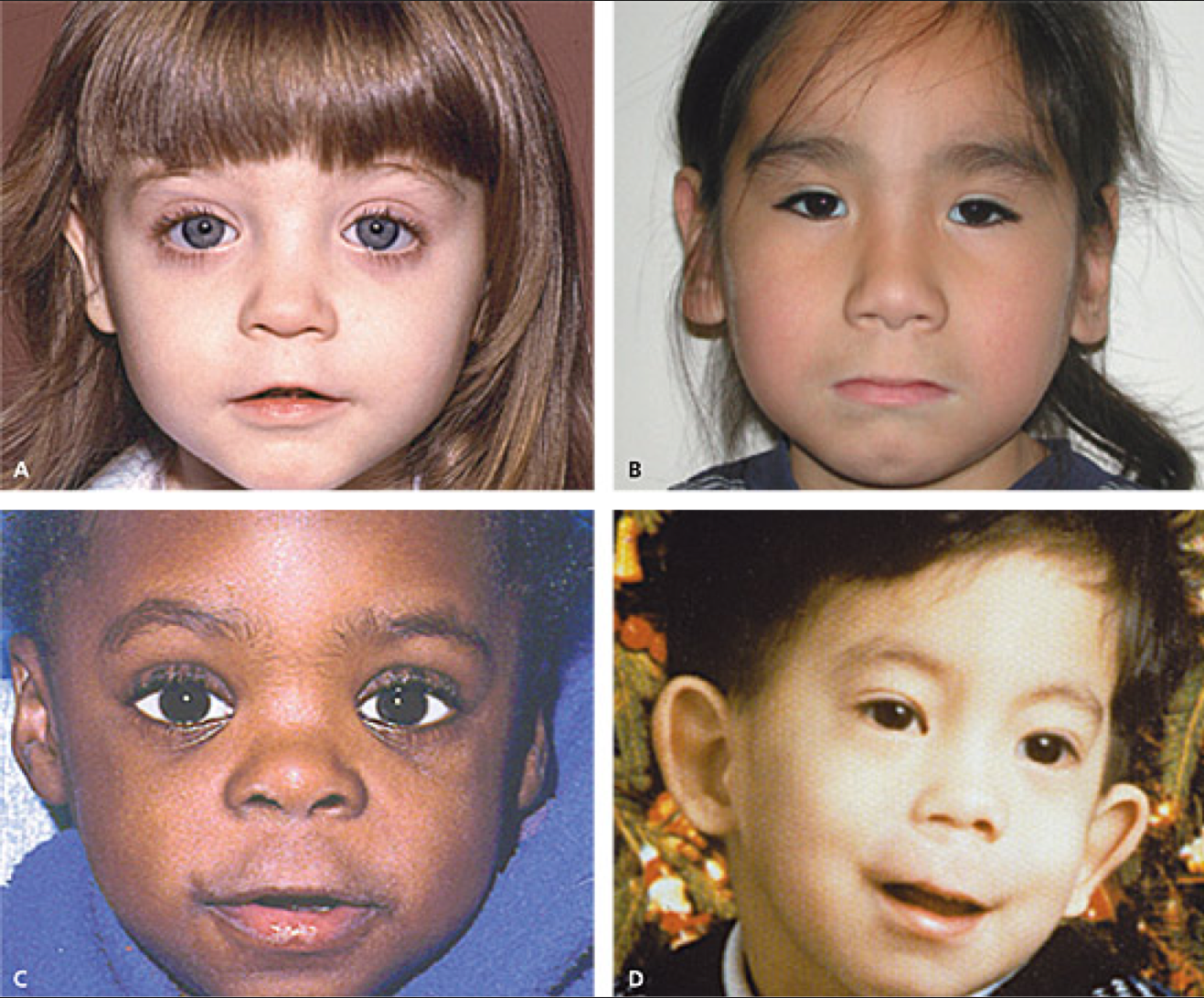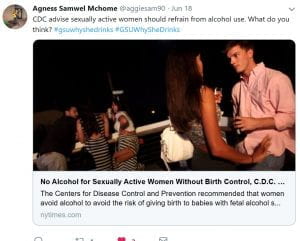Over the last 3 weeks, I have been amazed at how much I have learned about alcohol from a biological, social, and environmental standpoint. As a current dietetic intern studying nutrition, I have been very fascinated by the effects of alcohol in the body from a biological standpoint. In class, we discussed how alcohol can have detrimental effects on reproductive and maternal health, rates of infectious diseases, the incidence of non-communicable diseases, and mental health. Moreover, I was saddened to learn about the negative effects alcohol can have on infants and how drinking while pregnant can cause fetal alcohol spectrum disorder (FASD) in children. FASD is a devastating condition that can lead to poor cognition and delayed development in children. However, what is, even more, devastating is that this disorder could be prevented if the mother would have abstained from alcohol during pregnancy.
- Image of children with FASD
Sadly, there is new research coming out every day that shows how destructive alcohol consumption can be in the body even if it is “controlled” especially in women. One example of this is a study published in June 2019 that showed how alcohol can stunt the growth of the early embryo and the stem cells that become the placenta. Researchers wrote, “After the rats were exposed to alcohol, the placenta was poorly formed and was not able to give the fetus all the nutrients it needed to grow. This effect was more severe in female fetuses than in male fetuses.” Furthermore, researchers were able to show that alcohol consumption prior to a few days before conception can have detrimental effects on the development of the fetus in rats.
Researchers were not able to fully understand the mechanism behind why female fetuses were more vulnerable than male fetuses calling for more research to be done. While it may take years to fully understand the mechanism behind this study, I believe it further solidifies the growing opinion around how toxic alcohol can be especially in women of childbearing age.
This led me to think about the following questions:
What if a mother drinks before she knows she is pregnant?
If more childbearing age women knew that alcohol could potentially harm their fetus especially female fetuses would it decrease consumption of alcohol?
Should there be more policy around the alcohol industry targeting women of childbearing age since there is a greater health risk involved?
This article sparked many questions that I think our society should think about on a deeper level.
One day while on Twitter, I came across a classmates tweet on the CDC recommendations for women of childbearing age.
According to the CDC, women should avoid alcohol if they are sexually active and not using birth control. What was interesting was how much backlash this recommendation receive from the public. Many major news outlets like Elle magazine expressed outrage over the new recommendations. Did the CDC go too far in telling women that they should not drink if they are sexually active and not using birth control?
In my opinion, the CDC is right. Women of childbearing age are more susceptible to some of the most devastating effects of alcohol. I think this policy helps to protect this population even though it may sound like your grandma preaching to you about your habits. Furthermore, I think Dr. Anne Schuchat, CDC Principal Deputy Director, said it best, “Alcohol can permanently harm a developing baby before a woman knows she is pregnant. About half of all pregnancies in the United States are unplanned, and even if planned, most women won’t know they are pregnant for the first month or so, when they might still be drinking. The risk is real. Why take the chance?”
References
- https://scienceoveracuppa.com/2014/07/06/sometimes-you-can-tell-a-book-by-its-cover-shared-developments-of-the-brain-and-face/
- https://dev.biologists.org/content/146/11/dev172205
- https://www.huffpost.com/entry/cdc-alcohol-young-women-pregnancy-warning_n_56b22f03e4b04f9b57d805bc?guccounter=1&guce_referrer=aHR0cHM6Ly93d3cuZ29vZ2xlLmNvbS8&guce_referrer_sig=AQAAABu_Fe4255l68fYf5D0k9N_bUtYMK2-kn12RKDNpi4iAuKq5B8qGXzHC1WiWo3YiDfyJqLYK-ZOE7sohkWeu_Y4IYm0zno6gzRNBuuccBi1bccbIFefokFOOatqwrogHeBAwPYWATqYS-Cz3ntfVLAFEbJgoBkzAexUosPL9KIb_


